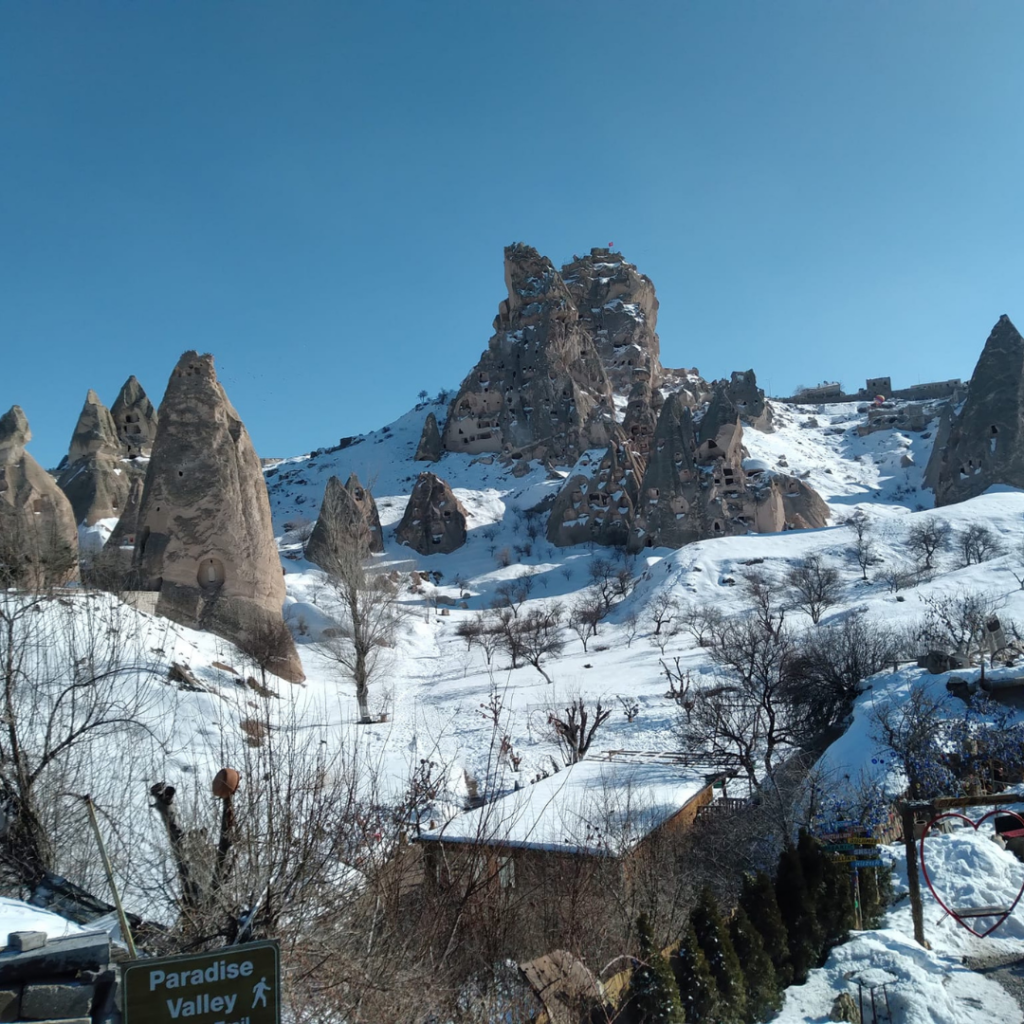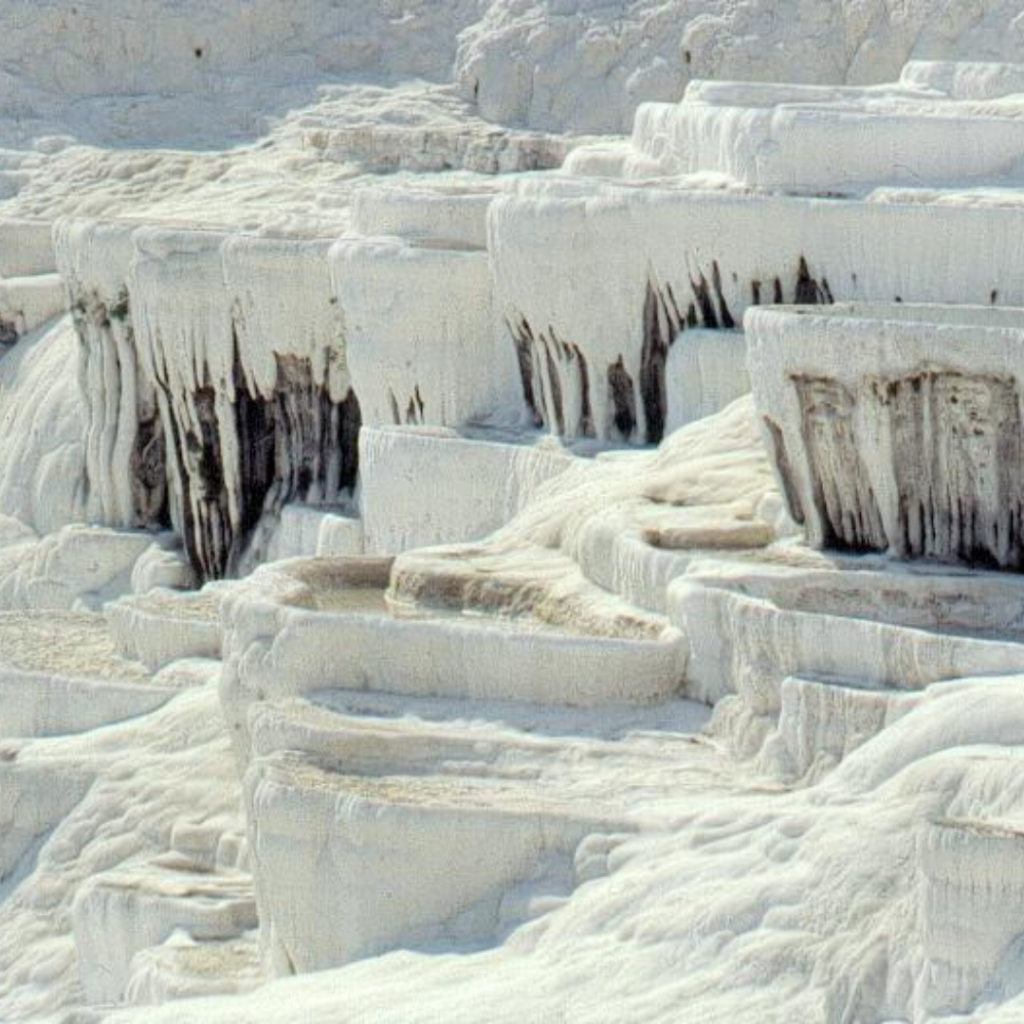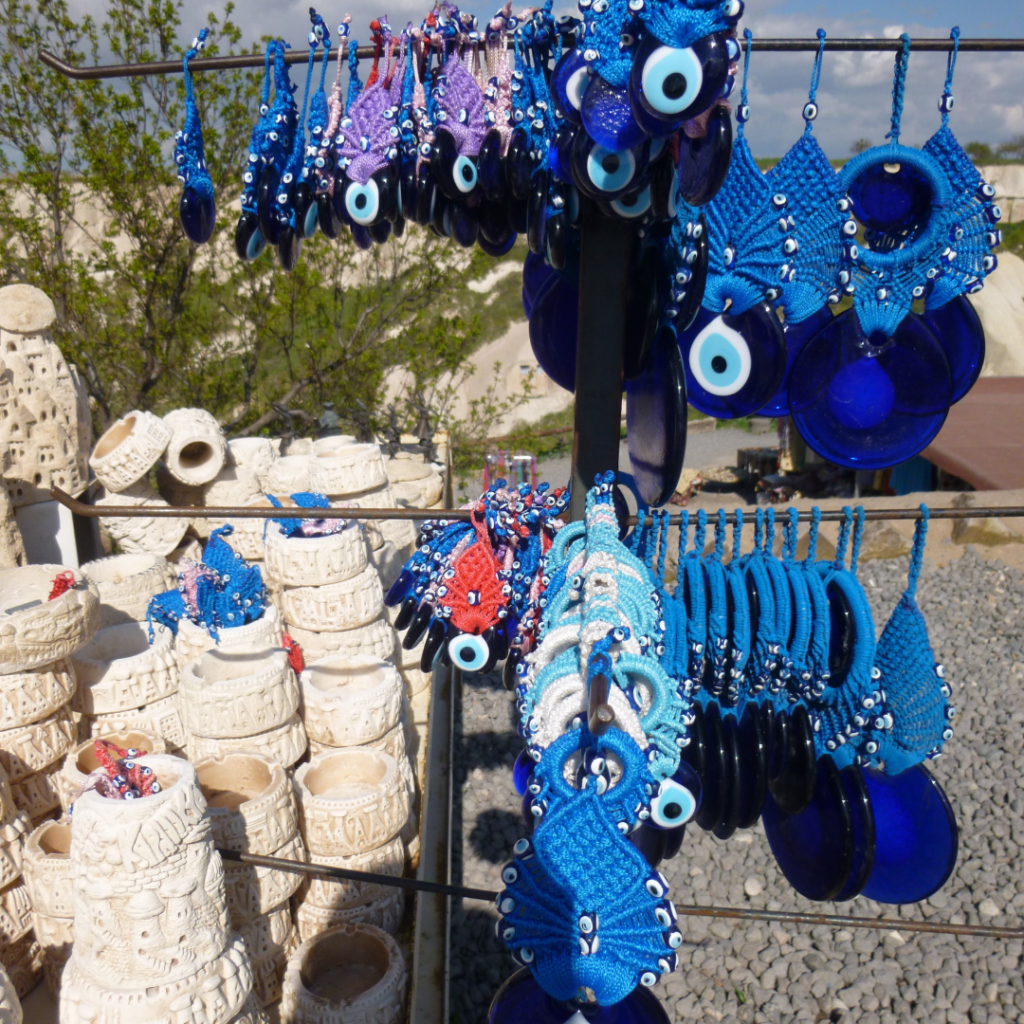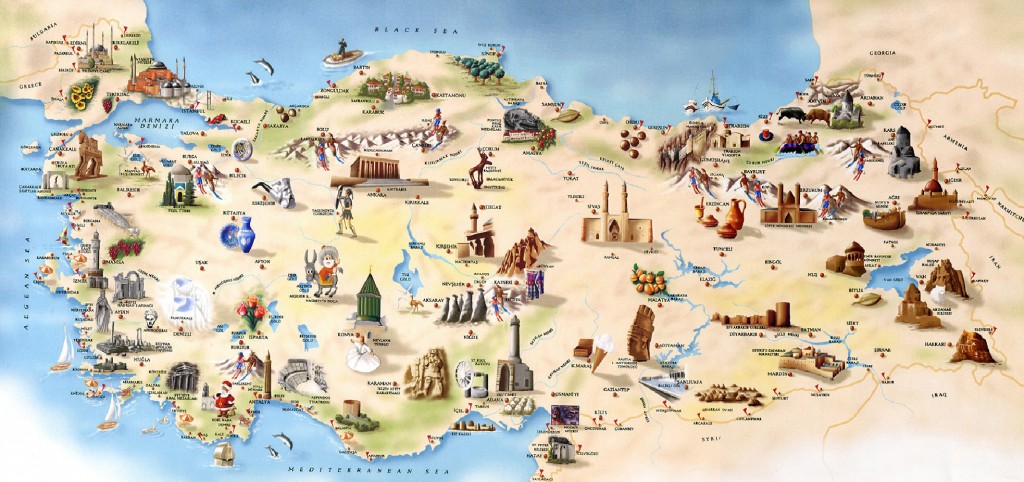Welcome to Turkey
Turkey is a paradise of sun, sea, mountains, and lakes that offers vacationers a complete break from the stress and routine of everyday life. From April to October, most places in Turkey have ideal weather, perfect for relaxing on sandy beaches or enjoying the tranquility of the mountains and lakes.
Turkey also has a magnificent history and culture, and is a land full of historical treasures from over 20 successive civilizations spanning 10,000 years. Even if you spend a short time in Turkey, you can see a lot of this wonderful past.
There’s no doubt that one visit won’t be enough, and you’ll want to return again and again, discovering one extraordinary place after another. All of them, however different they may be, have one thing in common: the hospitality and friendship of the people of this unique country.
TURKEY IN BRIEF
GEOGRAPHY
Turkey has an area of 780,000 km². 3% is on the European side, 97% is on the Asian side. It is separated by the Bosphorus, the Sea of Marmara, and the Dardenelles. Anatolia is a high plateau rising gradually towards the east, broken by valleys and rivers including the Halys, Euprates, and Tigris. There are numerous lakes, some of which, like Lake Van, are as large as inland seas. To the north, the Black Sea mountain range runs parallel to the Black Sea. To the south, the Taurus runs parallel to the Mediterranean. A fertile coastal plain runs along the coast. Turkey enjoys a variety of climates, ranging from the temperate climate of the Black Sea region to the continental climate of the interior, and then to the Mediterranean climate of the Aegean and Mediterranean coastal region. The coastline touching the four seas that border the country stretches for 8,330 km.
HISTORY
Turkey has been called “the cradle of civilizations.” Traveling through the historical land, one will discover exactly what this phrase means. The earliest known settlement in the world is Çatalhoyuk, a Neolithic city, dating back to 7000 BC. From Çatalhoyuk to the present; Turkey has a rich culture that, through centuries of cultivation, makes Turkey a paradise of cultural wealth; Hattis, Hittites, Phrygians, Urartians, Lycians, Ionians, Lydians, Persians, Macedonians, Romans, Byzantines, Seljuks, Ottomans have all made significant contributions to the history of the region. unique distinction.
Turkey also has a fascinating recent history. During the decline of the Ottoman Empire, a young man named Mustafa Kemal, a visionary general, took the defeat of World War I and turned it into a resounding victory by liberating Turkey from all occupying forces. Mustafa Kemal Atatürk founded the Republic of Turkey on October 29, 1923. He led his country to peace and stability, which led to considerable economic growth and increasing modernization.
POPULATION
Turkey has a population of 85 million, 75% of whom live in cities and the rest in the countryside. The largest cities are Istanbul, Ankara (the capital), Izmir, Bursa, Adana, and Antalya.
LANGUAGE
The Turkish language belongs to the Ural-Altaic language group, which has some affinity with the Finnish and Hungarian languages in Europe.
Currently, the Turkish language is written using the Latin alphabet and more than 200 million people speak Turkish worldwide.
RELIGION
99% of the Turkish population is Muslim. The state is secular, with freedom of worship for non-Muslims. Especially in Istanbul, but also in all major cities, numerous Catholic, Orthodox, and Protestant churches, as well as synagogues, have been built and preserved since the Ottoman period.
CLIMATE
Turkey enjoys a varied climate from one region to another. A rainy Black Sea climate, a continental climate in the center of the country in Central Anatolia, a Mediterranean climate in the south and west of the country. Summers are sunny and hot, and winters are often harsh, but you’ll find some mild weather along the Mediterranean and Aegean coasts. Spring and autumn may be the best times to enjoy the vivid and contrasting colors of the landscapes, although this is also the beginning of the rainy season.
WHAT TO WEAR
In midsummer, from mid-June to mid-September, you’ll need lightweight cotton summer clothes and a light sweater or jacket for evenings or to wear on the Central Anatolian Plateau. You won’t need rain gear at all; expect it on the Black Sea coast. You’re better off hiding between showers than carrying rain gear for the entire trip just for a day or two of possible rain on the Black Sea coast. In spring and autumn, summer clothes will still be fine, but evenings will be cooler. If you plan to travel extensively in Central Anatolia (Ankara, Konya, Cappadocia, Nemrut Dağı), pack a thicker sweater and perhaps a light raincoat. In winter, from December to March, you should wear woolen rain gear. Although it is not really cold along the Mediterranean coast, it is cold, wet and rainy in most of the southern countries, but central Anatolia, the northern coast of Turkey including Istanbul is cold, even sometimes covered in snow in winter.
Dress code for entering the mosque: During the summer, women and men can wear casual shirts, t-shirts, shorts, or tights throughout Turkey, but you have the rules for entering mosques; long pants and skirts, long-sleeved shirts, and scarves for women. Even if the mosque administration provides you with the necessary coverings, it is best to have them with you to avoid the queues and wait.
ECONOMY
Agriculture plays an important role in the Turkish economy. Turkey is one of the world’s largest food exporters. Its main products are wheat, rice, cotton, tea, tobacco, hazelnuts, and fruit. Sheep are Turkey’s most important livestock. Turkey is one of the largest producers of wool and cotton in Europe. Recently, industrial products have also become an important component of the Turkish economy, boosting economic growth, particularly household goods and automobiles. In addition to the above, Turkey has become a major tourist destination in Europe. With the rapid development of tourist facilities, both winter and summer, the country is now able to welcome a larger number of tourists from all over the world.
MONEY AND EXCHANGE
The currency unit is the Turkish lira (TL). Exchange rates are published daily in newspapers, and exchange offices are available throughout major cities. Credit cards are accepted everywhere. Traveler’s checks or personal checks are less accepted. The exchange rate for the euro is approximately 15 TL (as of March 2022).
TIP
It’s customary to tip, but it’s often not included in the price in cafes and restaurants. In smaller restaurants, it’s not mandatory, but it’s always welcome. 10% is often a reasonable amount.
TV & RADIO
There are a large number of local and private television and radio channels in Turkey, as well as the national channel TRT. On TRT, news briefs are broadcast in English, and in the evenings, they are also broadcast in French and German. International channels such as TV 5 Europe, CNN, NBC, BBC, and Eurosport are also available.
ELECTRICITY
WATER
HEALTH
Emergency number for SAMU: 112, available throughout Turkey.
WORKING HOURS
PUBLIC HOLIDAYS.
JANUARY 1: New Year’s Day
APR 1: National Independence and Children’s Day
MAY 19: Youth and Sports Day (to commemorate Atatürk’s birthday)
AUGUST 30: Victory Day
OCT 29: Republic Day
Religious holidays such as Ramadan Bayramı (Seker Bayramı) and Kurban Bayramı are also public holidays. However, since the dates of these two feats are reset every year according to the Hicri calendar (Lunar Calendar), their dates change.
FESTIVALS, FAIRS, EVENTS
JAN: Camel Wrestling / SELCUK
MAR: Istanbul International Film Festival / ISTANBUL
APR: Traditional Festival “Mesir” / MANISA
APR: International Children’s Day / ANKARA
APR-MAY: Ephesus Int Festival of Culture and Tourism / SELCUK
MAY: Yunus Emre Culture and Art Week / ESKISEHIR
MAY: International Kilim (Carpet) Festival / USAK
JUN: Cesme Sea and Music Festival / CESME
JUN-JUL: Traditional Wrestling Kırkpınar / EDIRNE
JUL: Ceramics Festival / KUTAHYA
AUG: Troy Festival / CANAKKALE
SEPT: Izmir International Fair / IZMIR
SEPT: Golden Orange Film Festival / ANTALYA
NOV: International Yacht / MARMARIS







